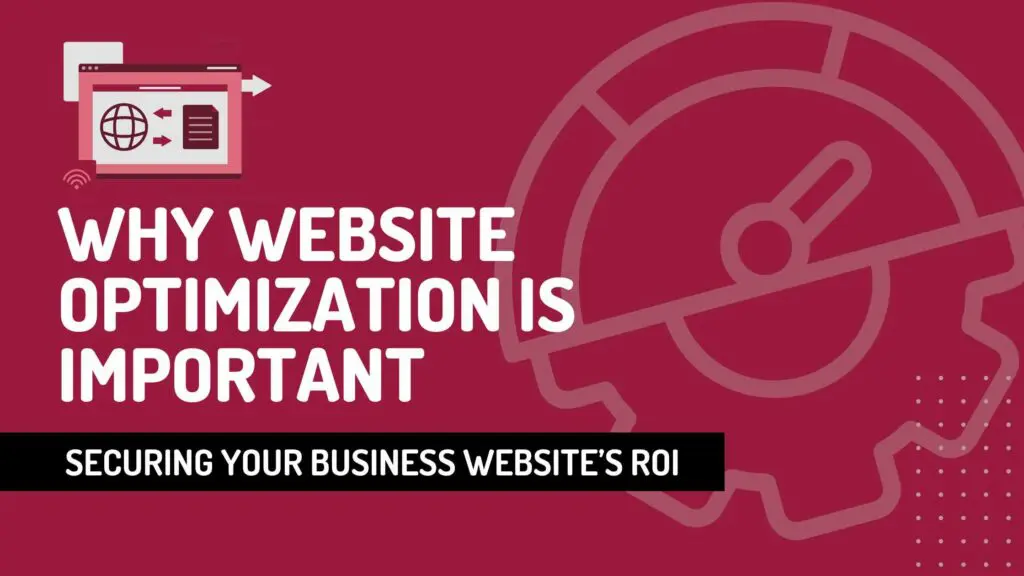
You’ve got 7 seconds. That’s it. The average time a user spends deciding whether to stay on your site or leave is shockingly brief. Now, imagine what happens if your website loads slowly, has broken links, or doesn’t work well on mobile. You’re likely watching potential leads slip through your fingers without even realizing it.
Website optimization is important because it impacts how users interact with your business online. It’s not just about aesthetics—it’s about performance, user experience, and ultimately, your bottom line. If your website isn’t optimized, you’re not just losing traffic—you’re losing business.
So let’s take a deep dive into why website optimization matters and what you can do to ensure your local business website is up to par.
1. First Impressions Happen Fast—and They Matter
It takes about 0.05 seconds for users to form an opinion about your website. In that blink of an eye, they decide whether to stay or leave. What they see, how fast your site loads, and whether it’s easy to navigate all play a role in that decision.
A poorly optimized site can leave a bad impression, no matter how fantastic your services or products are. If visitors have to wait for pages to load, wrestle with clunky navigation, or scroll endlessly on their mobile devices, they won’t hesitate to click away. In fact, 53% of mobile users will abandon a site if it takes more than 3 seconds to load.
That’s why website optimization is important—it creates a smooth, fast, and enjoyable experience that encourages users to stay longer and engage with your content.
2. Google’s Eyes Are on You: SEO and Website Optimization Go Hand in Hand
When we talk about website optimization, we can’t ignore its relationship with SEO (Search Engine Optimization). Google’s algorithm favors websites that load quickly, are easy to navigate, and offer a smooth mobile experience. If your site doesn’t meet these criteria, don’t expect to rank highly in search results.
Google uses something called Core Web Vitals to measure user experience on your website. These metrics include loading speed, interactivity, and visual stability. The better your site performs in these areas, the higher your chances of ranking well.
Why does this matter? Because 75% of users never scroll past the first page of Google search results. If your site isn’t optimized, it’s buried in the digital graveyard of page two and beyond. No optimization means no traffic. No traffic means no conversions.
Optimizing your website for speed and performance helps you rank higher and gives your business the visibility it needs to succeed.
3. Mobile Optimization Isn’t Just a Nice-to-Have—It’s a Must-Have
We’ve officially entered the mobile-first era. Over 58% of all web traffic now comes from mobile devices. If your site isn’t optimized for mobile, you’re alienating over half of your audience right off the bat.
Mobile users expect fast, intuitive, and responsive experiences. A site that loads poorly on mobile devices won’t just frustrate users—it’ll also tank your search rankings. Google switched to mobile-first indexing in recent years, meaning it now uses the mobile version of your website as the primary basis for ranking.
If your site is optimized for desktops but offers a lousy experience on mobile, you’re in trouble. Prioritizing mobile optimization means ensuring that your images load quickly, your navigation is easy to use with a thumb, and your content is displayed clearly across different screen sizes.
Actionable Insight:
Test your site across multiple devices. Use tools like Google’s Mobile-Friendly Test to ensure you’re delivering a seamless experience, whether your users are on smartphones, tablets, or desktops.
4. Faster Websites Equal Higher Conversion Rates
The stats don’t lie—every second of delay in your website’s load time can reduce conversions by 7%. If you’re an e-commerce business making $100,000 per month, a 1-second delay could potentially cost you $2.5 million in lost sales each year. Those are staggering numbers.
Website optimization is important because it directly impacts your conversion rates. Faster websites create a smoother user journey, from the moment someone lands on your homepage to the final click on a “Buy Now” button. Every unnecessary obstacle—whether that’s slow loading times, confusing navigation, or a cluttered layout—adds friction to the user experience and decreases the likelihood of a conversion.
Actionable Insight:
Focus on streamlining the key elements of your site, such as checkout processes, contact forms, and calls to action. Make it as easy as possible for users to convert by eliminating unnecessary steps and reducing page load times.
5. A/B Testing: Fine-Tuning Your Optimization Efforts
Website optimization isn’t a one-and-done task—it’s an ongoing process. One of the best ways to continuously improve is by running A/B tests. These tests allow you to compare two different versions of a webpage to see which one performs better.
For example, you might test two different layouts for a landing page, two variations of a call-to-action button, or even different product descriptions. Over time, these small tweaks can lead to significant improvements in user engagement and conversion rates.
Actionable Insight:
Use tools like Google Optimize or Optimizely to run A/B tests on critical parts of your website. This data-driven approach helps you make informed decisions about which elements to keep and which ones to improve.
6. Website Optimization Boosts Your Credibility
Imagine walking into a physical store that’s dimly lit, poorly organized, and cluttered. Chances are, you’d walk right back out. The same principle applies to your website.
In the digital world, your website is your storefront. A slow, outdated, or unresponsive site reflects poorly on your business and erodes trust. On the other hand, a fast, clean, and optimized website sends a signal to your visitors that you’re professional, trustworthy, and credible.
Studies show that 94% of people base their first impressions of a business on web design alone. If your site isn’t optimized, you’re making a bad first impression before anyone has even read a word of your content. That’s a huge missed opportunity.
Actionable Insight:
Conduct regular website audits to ensure everything is functioning smoothly. Keep your design modern and make sure your site is free of broken links, outdated plugins, or slow-loading pages.
7. Security: An Overlooked Element of Optimization
Website optimization isn’t just about speed and usability—it’s also about security. Google places a premium on secure websites, especially those using SSL certificates (which ensure that data passed between users and the site remains private and secure). Sites without an SSL certificate get flagged as “Not Secure,” which can immediately turn visitors away.
Having a secure, optimized website not only protects your business from cyber threats but also reassures your visitors that their personal information is safe. This is especially important for e-commerce sites and any business that handles sensitive customer data.
Actionable Insight:
Make sure your website is secure by installing an SSL certificate and keeping all your software, themes, and plugins up to date. Consider adding security plugins like Wordfence or Sucuri to monitor potential threats and block malicious traffic.
8. Accessibility: Optimization for All Users
A key aspect of website optimization is ensuring that your site is accessible to all users, including those with disabilities. This is not only a matter of compliance but also an important factor in creating an inclusive, user-friendly experience.
Making your site accessible means considering things like text readability, keyboard navigation, and providing alt text for images so that screen readers can interpret them. An accessible website improves user experience for everyone and widens your potential audience.
Actionable Insight:
Use tools like WAVE or Accessibility Insights to check your site’s compliance with accessibility guidelines. Consider features like scalable fonts, sufficient color contrast, and intuitive keyboard navigation.
Conclusion: Why Website Optimization is Non-Negotiable
In today’s fast-paced, competitive digital landscape, website optimization is important for a simple reason: it’s the foundation of your online success. From first impressions to conversion rates, SEO rankings, and even user trust, every aspect of your business is impacted by how well your site performs.
By prioritizing speed, mobile responsiveness, usability, security, and accessibility, you can ensure that your website isn’t just good—it’s exceptional. And that’s how you turn visitors into loyal customers.
Optimization isn’t a one-time task—it’s a continuous journey. But the payoff? It’s massive. Your business deserves a website that works as hard as you do. Let’s get to optimizing!
If your business needs an optimized website to attract and convert ideal clients, book a discovery call today and see how a well built website by an Airdrie Web Designer who works with clients all over the world can help you make the most of your investment into the world wide web.
